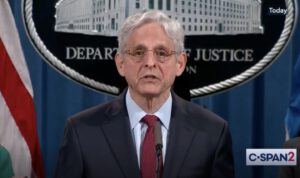California legislature passes measures to reduce school board power
(The Center Square) – The California legislature passed several bills aimed at reducing the power of school boards, from cutting their power to determine curriculum content, to removing their…

(The Center Square) – The California legislature passed several bills aimed at reducing the power of school boards, from cutting their power to determine curriculum content, to removing their ability to remove a superintendent who does not meet their standards.
These bills follow state controversy in the wake of some local school boards’ decisions to remove what they claim is inappropriate content from younger students’ classrooms, and the adoption of policies to notify parents if a child makes gender-change-related requests.
“A small group of extremists has sought to divide communities by advancing policies to ban books related to civil rights for communities of color and the LGBTQ+ community, to force school districts to ‘out’ LGBTQ+ students, and to restrict inclusive curriculum. We needed to act quickly and reject these policies,” said California State Superintendent Tony Thurmond in a statement supporting these newly passed measures awaiting the governor’s signature.
AB 1078, which Thurmond sponsored and helped write, would prevent school districts from failing to adopt textbooks in line with state curriculum requirements by creating a mechanism for the county superintendent to request the state Department of Education purchase the needed materials and automatically pass the costs on to the school district in question. It would also require a ⅔ supermajority, not a simple majority, of school board votes to remove any “inclusive” curriculum elements and give parents a means of challenging any such removals with the county’s Board of Education. In the bill, the term “inclusive” education materials was clarified to include “people of all genders, Latino Americans, LGBTQ+ Americans, and members of other ethnic, cultural, religious, and socioeconomic status groups.”
The bill would directly address the controversy caused by Temecula Valley Unified School District, which rejected a state-approved textbook option for social studies materials for 1st through 5th graders on LGBTQ history that they felt would require having to explain sex and gender at an “inappropriate” age. In response, Governor Gavin Newsom said he would purchase the textbooks and send the district a $1.5 million fine to cover the cost. The school board then adopted the materials while pulling a fourth-grade lesson on LGBTQ history for review and possible revision.
“This threat to fine school board trustees who don’t want to give in to the authoritarians in Sacramento will handicap school boards’ ability to create curriculums that comply with state law and standards but does not comply with what political leaders want in Sacramento,” said California Policy Center Vice President of Government Affairs Lance Christensen in an interview with The Center Square.
Meanwhile, SB 596 by Senator Anthony Portantino, D–Burbank, would make it a misdemeanor for any adult to cause “substantial disorder” at any meeting of the governing board of a school district, the governing body of a charter school, a county board of education, or the State Board of Education, with those found guilty receiving a fine between $500 and $1000, or imprisonment in a county jail not exceeding one year, or both imprisonment and the fine.
It also makes it a misdemeanor for any adult to harass or make a credible threat against an employee of a school while they are not at school — such as online. It defines “credible threat” as “a verbal, written, or electronic communication, a communication implied by a pattern of conduct, or a combination of a verbal, written, or electronic communication and conduct” that makes the subject reasonably fear for their safety, and “harassment” as a “knowing and willful course of conduct directed at a specific person that seriously alarms, torments or terrorizes the person, and that serves no legitimate purpose” that “must be that which would cause a reasonable person to suffer substantial emotional distress, and must actually cause substantial emotional distress to the person.”
Some critics, such as the American Civil Liberties Union, stated the bill creates a new crime for which laws are already on the books to prevent.
“This bill would create a new crime for threats or harassment against a school employee while away from a school site,” wrote the American Civil Liberties Union in an opposition statement. “While we believe teachers should be protected on and off campus, we see existing law as adequate to fulfill this goal without the need for a new crime.”
Other critics, such as Christensen, say the bill is so broad and vague that it will having a chilling effect on free speech by either silencing or prosecuting people who are “concerned about what is happening in public schools” and “speak out.”
“It will give tools to law enforcement to hunt opposition down,” said Christensen.
Lastly, SB 494, by Senator Josh Newman, D–Diamond Bar, would restrict the ability for school boards to take action against or fire a superintendent or assistant superintendent without cause during any special or emergency meeting, or within 30 days after the first board meeting after an election in which at least one board member was elected or recalled.
According to Newman, the bill was a response to Orange Unified School District’s firing of the district superintendent without cause and appointing a replacement at a special meeting.
“It’s fairly self-evident that newly elected school board members generally need some time to become fully conversant in the often complex inner workings of school district governance, as well as the various and sometimes unique issues facing the district,” said Newman. “In recognition of those facts, it seems reasonable that school district governing boards should have a ‘cooling off,’ or ramping up, period before making decisions as momentous as changing district leadership with cause by ensuring an appropriate interval for noticing and a resulting open and comprehensive discussion that fully includes all prospectively affected stakeholders as well as the public at large.”



